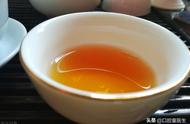参考文献
[1]Zhang, Y., Yang, H., Li, S., Li, W., & Wang, Y. (2021). Consumption of coffee and tea and risk of developing stroke, dementia, and poststroke dementia: A cohort study in the UK Biobank. PLOS Medicine, 18(11), e1003830. https://doi.org/10.1371/journal.pmed.1003830
[2]Kokubo, Y., Iso, H., Saito, I., Yamagishi, K., Yatsuya, H., Ishihara, J., Inoue, M., & Tsugane, S. (2013). The impact of green tea and coffee consumption on the reduced risk of stroke incidence in Japanese population. Stroke, 44(5), 1369–1374. https://doi.org/10.1161/strokeaha.111.677500
[3]Komorita, Y., Iwase, M., Fujii, H., Ohkuma, T., Ide, H., Jodai-Kitamura, T., Yoshinari, M., Oku, Y., Higashi, T., Nakamura, U., & Kitazono, T. (2020). Additive effects of green tea and coffee on all-cause mortality in patients with type 2 diabetes mellitus: the Fukuoka Diabetes Registry. BMJ Open Diabetes Research & Care, 8(1), e001252. https://doi.org/10.1136/bmjdrc-2020-001252
[4]https://www.mayoclinic.org/zh-hans/healthy-lifestyle/nutrition-and-healthy-eating/in-depth/caffeine/art-20045678
[5]黄业伟,徐欢欢,王素敏等.不同茶叶中所含结合咖啡因比例的分析[J].云南农业大学学报(自然科学),2015,30(02):228-233.DOI:10.16211/j.issn.1004-390X(n).2015.02.010.
[6]秦园,王惠芳,吴建兵,钱志荣,吴梅,陈祝军. 超高效液相串联质谱检测茶叶及茶饮料中咖啡因含量[J]. 食品工业科技,2019,40(10):286-289 301.
策划制作
策划:Susie | 监制:Feidi
插图:站酷海洛 | 封面图来源:站酷海洛
最近微信改版,有读者说找不到我们的文章















